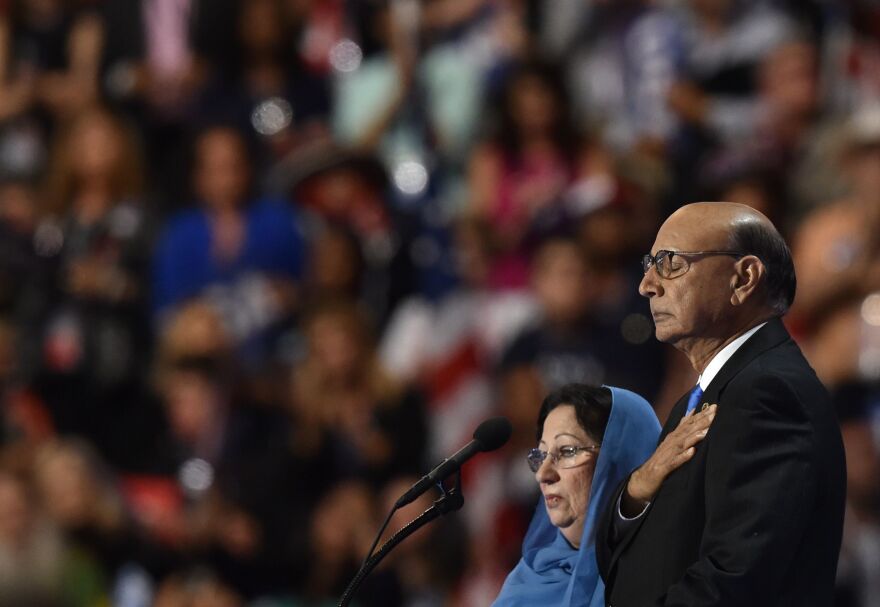Khizr Khan, the Muslim-American lawyer thrust into the spotlight this week after speaking at the Democratic National Convention about his soldier son and criticizing Donald Trump, says he has no regrets about the speech or the attention that followed.
"I will do it [a] million times, I will do it louder, I will do it forcefully," Khan told Kelly McEvers, host of NPR's All Things Considered. "I'll do it [a] hundred million times — now is the time for the rest of the world to see the true America, the decent America, the good America."
Khan's son, Capt. Humayun Khan, was killed in Iraq in 2004. During Khan's convention speech, he painted Trump's policies toward immigration as un-American and held up a pocket Constitution challenging Republican nominee Trump to read it.
Trump and his allies hit back at the Khan family — the candidate said Khan's wife, Ghazala, stood next to him silently because "maybe she wasn't allowed to have anything to say, you tell me." Trump's comments were then condemned by political leaders on both sides of the aisle including Republican veteran Sen. John McCain. The Khans consistently did interviews on television and radio stations.
But Khizr Khan says that although the family has received hate mail and threats, the overwhelming support from strangers — from cabdrivers to teenage college students — is what has stayed with him.

Strangers have also flocked to their son's gravesite at Arlington National Cemetery.
"I was there and I was just amazed," Khan said. "There were so many flowers and so many people. ... It is an honor."
The Khans said they have also visited since the convention speech. Khan said that when he went, "I did what I do all the time. I stand there quietly and I close my eyes, and I talk to my creator."
Khan said that while his family's grief over the loss of their son has been mostly private for the past 12 years, he doesn't regret the story being so public now. "We are very deliberate people. We have discussed that there is going to be criticism," he said.
He said that all the support the family is receiving now is a testament to his son's "grace."
"The way he sacrificed his life, that grace continues to shine. All these words and events, and this public reception of us as his parents — this is all under that grace of caring for others," Khan said.
Khan also addressed criticism that they shouldn't have used their son's death to wade into politics. He said he thought about staying out of the political conversation but ultimately felt that calling out Trump was worth the "price" that he has had to pay:
"I would have such a burden on my conscience if I would have not spoken. In the midst of the grief, we don't set our conscience aside. There are some prices that must be paid. There are certain concerns and certain hearts that must be touched regardless of the price," he said.
"Someday, and I'm a strong believer, that when we appear in front of our God, I will have one thing to say about myself. That regardless of this, I preferred to comfort a scared heart."
Copyright 2021 NPR. To see more, visit https://www.npr.org.




